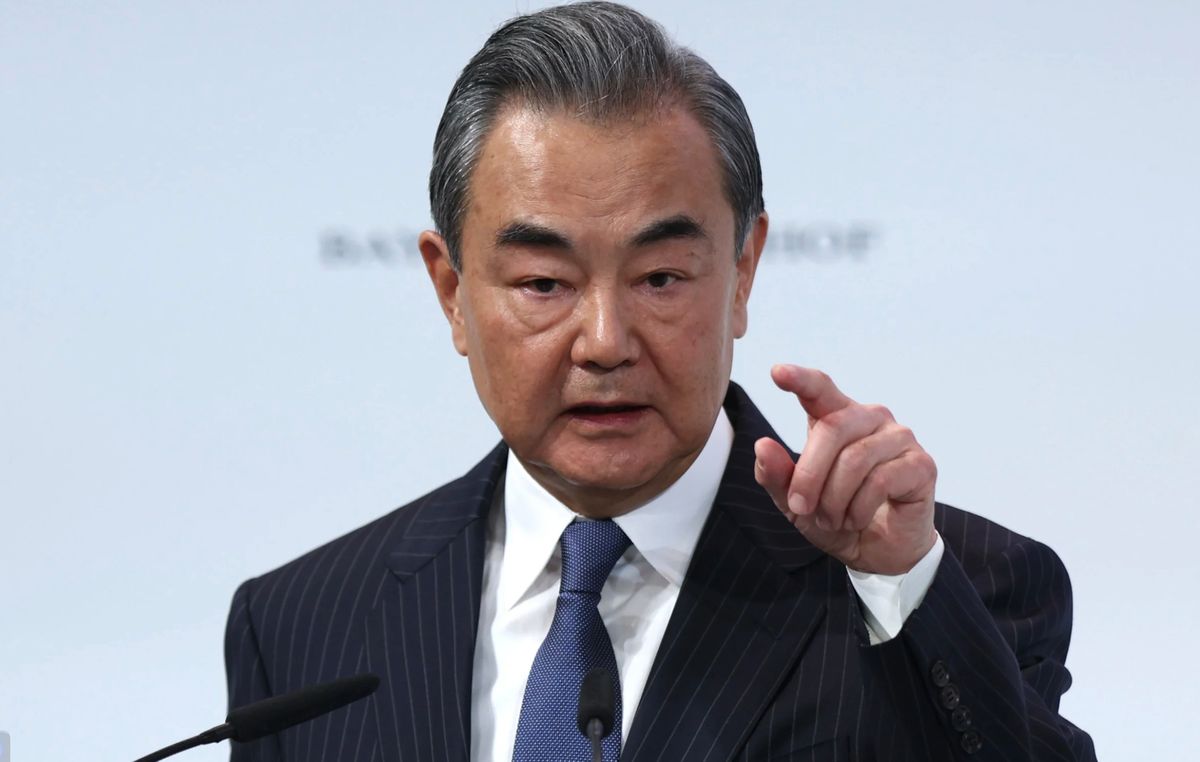Chinese Foreign Minister Wang Yi Visits Southeast Asia Amid Regional Jockeying

The Lede: China's Foreign Minister Wang Yi completed a four-day, three-country visit to Southeast Asia on Sunday with stopovers in Singapore, Malaysia, and Cambodia to shore up ties in the increasingly contested region.
What We Know:
- Wang began his trip on Thursday with a visit to Singapore where he met with Foreign Minister Vivian Balakrishnan, as well as Prime Minister Lee Hsien Loong and Deputy Prime Minister Lawrence Wong. Wang and Wong spoke about the progress made in Singapore-China bilateral cooperation, as well as the Joint Council for Bilateral Cooperation (JCBC), the platform for cooperation between the countries. Wang and Balakrishnan said that China and Singapore will speed up the full resumption of direct flights between the two countries and focus on increasing economic, trade, cultural and tourism exchanges, and overall cooperation.
- On Friday, Wang called the U.S. the ‘biggest source of instability’ in the world while China offers lasting benefits and opportunities for all countries. He landed in Malaysia that day, where he met with Prime Minister Dato' Seri Anwar Bin Ibrahim and Foreign Minister Zambry Abdul Kadir. The two countries highlighted that their two flagship projects under the Belt and Road Initiative (BRI), the “Two Countries, Twin Parks” development and the construction of the East Coast Railway Link, are well underway. They also emphasized their aims to boost bilateral automobile manufacturing, digital economy, new energy agricultural technology, and food security. China plans to import more quality farm products from Malaysia. The Malaysian foreign minister added his country’s appreciation and support for China’s global initiatives.
- Over the weekend, Wang visited Cambodia after Hun Sen, the incumbent prime minister, handed off the job to his son, the country's army chief, Hun Manet, following a one-sided election last month. This made Wang the first foreign leader to visit Cambodia in the days after the handover of power after the election. He met with both the outgoing and incoming prime ministers as well as with Cambodian Foreign Minister Prak Sokhonn. Wang affirmed China’s support for the newly appointed son, praising the election as free and fair, with more than 80% of Cambodians participating in the presence of several dozens of foreign observers.
The Background: Singapore upgraded to an “All-Round High-Quality Future-Oriented Partnership” with China in April this year. This year is the 10th anniversary of the China-Malaysia comprehensive strategic partnership and the two countries have been cooperating on significant BRI projects. Cambodia is a key Chinese diplomatic partner that often backs Beijing among the ASEAN nations, several of which have territorial disputes with China in the South China Sea. Cambodia also hosts numerous Chinese-funded projects such as hotels and casinos, airports, roads, and other infrastructure. More than 40% of Cambodia's $10 billion in foreign debt is owed to China. This trip coincides with tensions between China and the Philippines in the South China Sea.
Likely Outcomes:
- Wang’s trip includes countries that already lean in favor of China in the competitive environment of the region’s geopolitics. On Monday after Wang’s visit, Singapore’s Deputy Prime Minister Lawrence Wong warned of the dangers of Washington’s policies toward Beijing for the global economy. Malaysia has demonstrated on this visit a continued enthusiasm to cooperate with China on the BRI and other bilateral development, investment, and trade areas. Wang’s support for the results of Cambodia’s recent election puts good will between Beijing and Phnom Penh and helps build trust in the continuation of China’s development projects and investments in the country.
- U.S. and Western countries may put greater emphasis on Southeast Asia, and perhaps particular interest in these countries, to try to bring them into the fold of the larger geostrategic Indo-Pacific strategy. After Wang’s trip, Australia sent its biggest warship to the Philippines in preparation for military exercises with U.S. and Philippine forces. U.S. President Joe Biden said last week that he would visit Vietnam ‘shortly.’ There will be varying degrees of success as Southeast Asian countries ride the line between the competing superpowers, reaping economic benefits where they appear while hedging military and security bets in the volatile South China Sea.
Quotables:
"The United States, out of its motive to maintain unipolar hegemony, is unwilling to see the development and revitalisation of China and other emerging countries. On the one hand, it condones and supports the Taiwan independence forces relying on the United States to seek independence, trying to cross China's red lines. On the other hand, it tears away the pretence of fair competition and coerces other countries into unilateral protectionism against China. These perverse practices will only damage its own credibility, laying bare the fact that the United States has become the biggest destabilising factor in the world." – Wang Yi, foreign minister of China
“The dynamic that’s now being created because of the US-China extreme competition will lead us down a path that will be disastrous for the global economy. There will be a trade-off in terms of performance, in terms of power consumption, in terms of reliability – but you can design a workaround solution. Yes, it will slow down China’s access to high-end capabilities to some extent, but it’s not going to keep China down forever.” – Lawrence Wong, deputy prime minister of Singapore
Good Reads:
Chinese FM Wang Yi to Embark on Southeast Asia Tour (VOA)
Beijing’s top diplomat Wang Yi to visit Asean members amid South China Sea tensions (SCMP)
‘Extreme’ US-China rivalry could be ‘disastrous’ for global economy: Singapore’s Lawrence Wong (SCMP)
Wang Yi visits S'pore, meets PM Lee & DPM Wong, says China will speed up resumption of direct flights to S'pore (Mothership)
Wang Yi, Balakrishnan discuss ways to further bilateral ties (Jakarta Post)
China ready to deliver tangible outcomes in building China-Malaysia community: Wang Yi (The Strait Times)
China's Wang Yi visits Cambodia, meets with Hun Sen and son (Nikkei)
